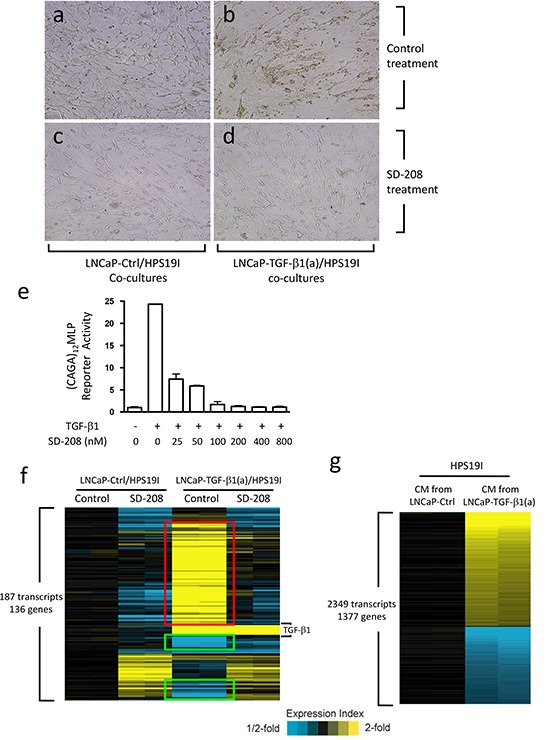Figure 1. Prostate stromal TGF-β signaling induces profound changes in the co-cultured LNCaP cells.

(a-d) LNCaP-TGF-β1(a) cells and LNCaP-Ctrl cells were co-cultured with HPS19I human prostate stromal cells in RPMI1640 supplemented with 0.2% FBS, and treated with 400 nM of SD-208 or control for 15 days. Representative photographs were shown for (a) control and (c) SD208 treated LNCaP-Ctrl/HPS19I co-cultures, and (b) control and (d) SD208 treated LNCaP-TGF-β1(a)/HPS19I co-cultures. HPS19I cells are at the bottom layer. (e) HPS19I cells were co-transfected with (CAGA)12MLP and pRL-null vectors, and treated with 50 pM of TGF-β1 and different dosages of SD-208 compound for 24 hours. Cell lysates were prepared and assayed for luciferase activity. (f) LNCaP-TGF-β1(a) cells or LNCaP-Ctrl cells were co-cultured with HPS19I cells in RPMI1640 supplemented with 0.2% FBS and treated with 400 nM of SD-208 or vehicle control for 6 days. Total RNA was extracted and microarrays were performed to compare differential gene expression among these differentially treated co-cultures. Two independent experiments were performed. (g) HPS19I cells were treated for 6 days with conditioned media (CM) from LNCaP-TGF-β1(a) cells or LNCaP-Ctrl cells in RPMI1640 supplemented with 0.2% FBS. Microarrays were performed to compare differential gene expression between these two differentially treated groups. Two independent experiments were performed.
